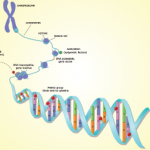“DNA methylation is an attractive candidate biomarker [because] it’s a relatively easy-to-analyze epigenetic modification, and it can be easily used in conjunction with clinical information for this purpose,” says Dr. Ballestar.
“Furthermore, the recent increase in affordability for generating high-throughput ‘-omic’ data will enable its use in the clinics, in a near future,” he adds, suggesting DNA methylation may be able to—at least partly—overcome the limitations in the sensitivity of current routine clinical markers.
ad goes here:advert-1
ADVERTISEMENT
SCROLL TO CONTINUE
Lara C. Pullen, PhD, is a medical writer based in the Chicago area.
References
- de la Calle-Fabregat C, Niemantsverdriet E, Canete JD, et al. Prediction of the progression of undifferentiated arthritis to rheumatoid arthritis using DNA methylation profiling. Arthritis Rheumatol. 2021 Dec;73(12):2229–2239.
- Pitzalis C, Kelly S, Humby F. New learnings on the pathophysiology of RA from synovial biopsies. Curr Opin Rheumatol. 2013 May;25(3):334–344.

